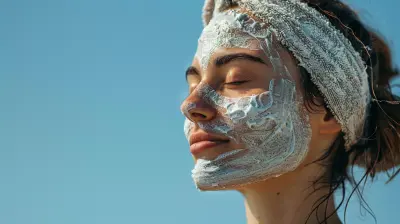Importance of Sleep for Healthy Aging
5 June 2025
Let’s face it—aging isn’t something most of us look forward to. But what if I told you that one of the most powerful tools to age gracefully, both inside and out, doesn’t involve expensive serums or complicated diets? It’s something so basic, so natural, yet often so overlooked: sleep.
Yep, you read that right. Good ol’ sleep.
In this article, we’re going to dive into why getting quality sleep is essential for healthy aging. We’ll talk about how sleep changes as we get older, why it matters even more as the candles on our birthday cake increase, and how to get better sleep despite those age-related challenges. Ready? Let’s tuck into it—pun fully intended!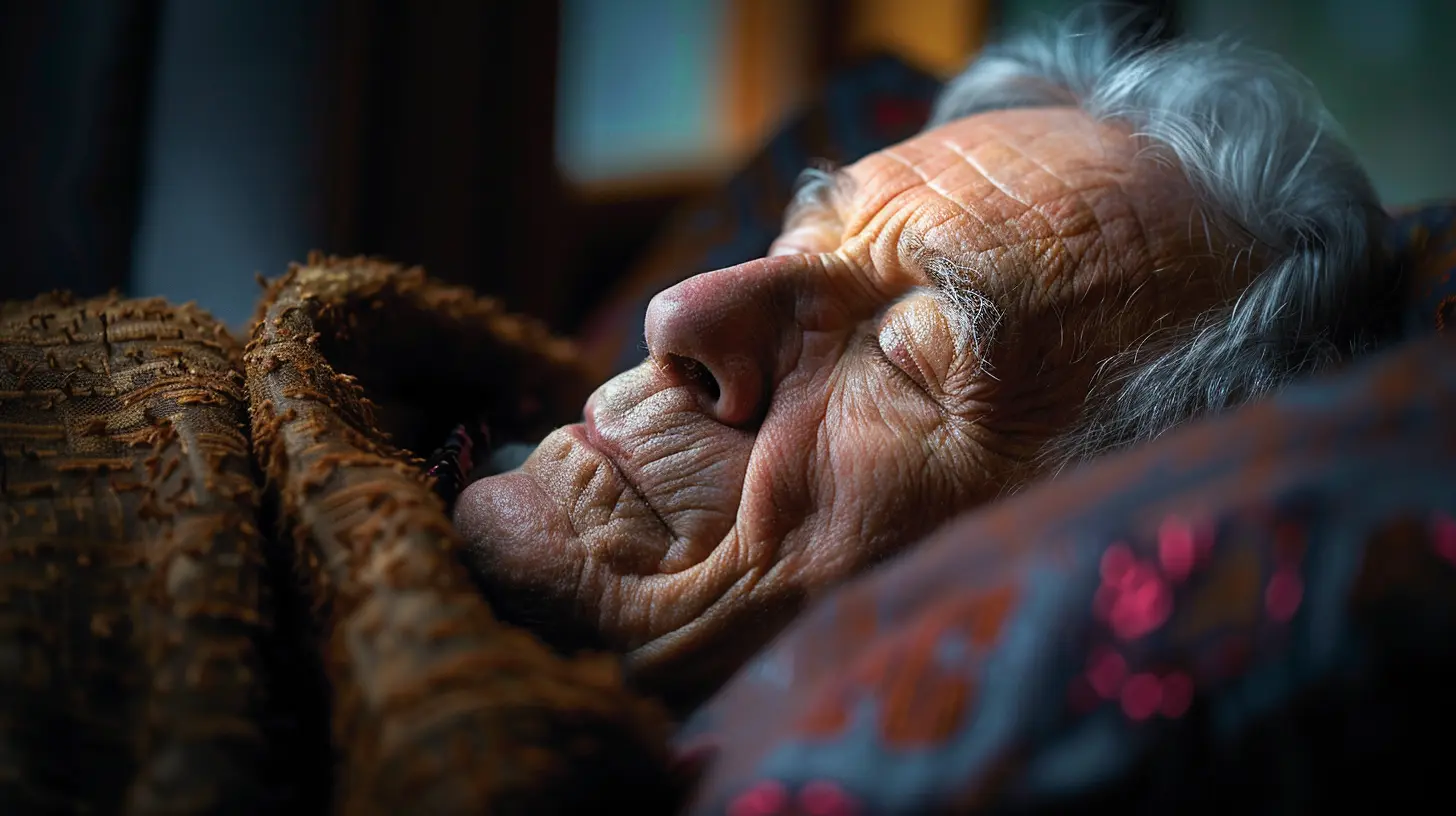
Why Sleep Is So Darn Important
We all know that sleep makes us feel better, but have you ever wondered why? Think of sleep as your body’s nightly reboot. Everything from your brain to your cells uses those precious hours to repair, reset, and rejuvenate.Here’s what your body is up to while you're dreaming:
- Your brain is sorting memories, flushing out toxins, and recalibrating emotional responses.
- Your immune system is kicking into gear, fighting off potential infections.
- Your organs are getting a break and doing their repair work.
- Your hormones are being balanced, helping to regulate metabolism, stress, and mood.
Now, imagine skipping out on all that night after night as you age. It’s like driving a car without ever changing the oil. It might run… but it won’t run well for long.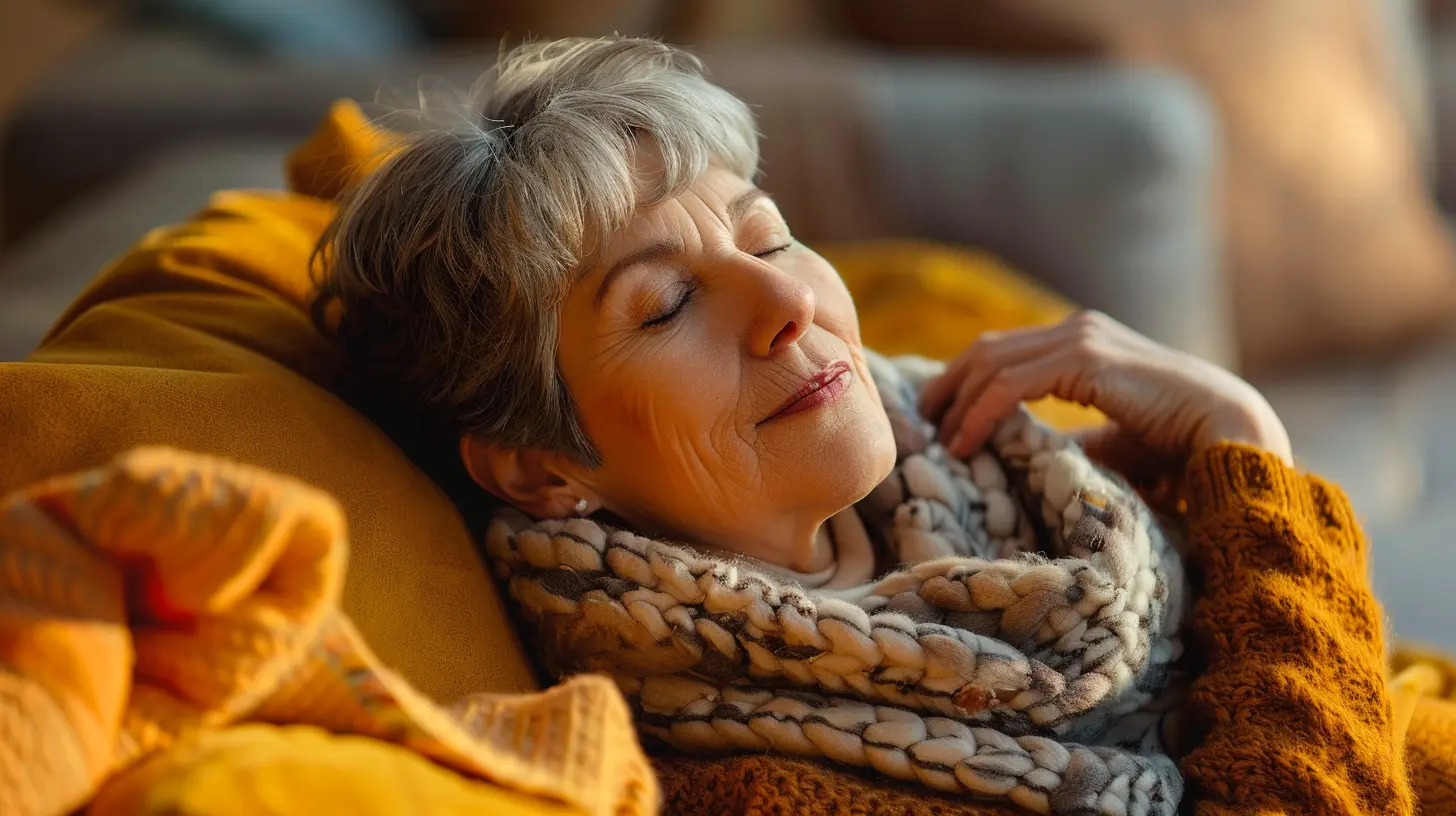
How Sleep Changes With Age
Here’s the annoying truth: the older we get, the harder good sleep becomes. It’s cruel, right? Just when we need rest the most, it decides to play hard to get.You might notice:
- Trouble falling asleep
- Waking up frequently during the night
- Waking up too early and not being able to fall back asleep
- Feeling drowsy during the day, even after a full night’s sleep
This is partly because of changes in our circadian rhythm—our internal body clock. As we age, this clock shifts, making us feel sleepy earlier in the evening and wake up earlier in the morning.
Plus, let’s not forget the common age-related culprits like arthritis, sleep apnea, restless leg syndrome, and even medication side effects that mess with our shut-eye.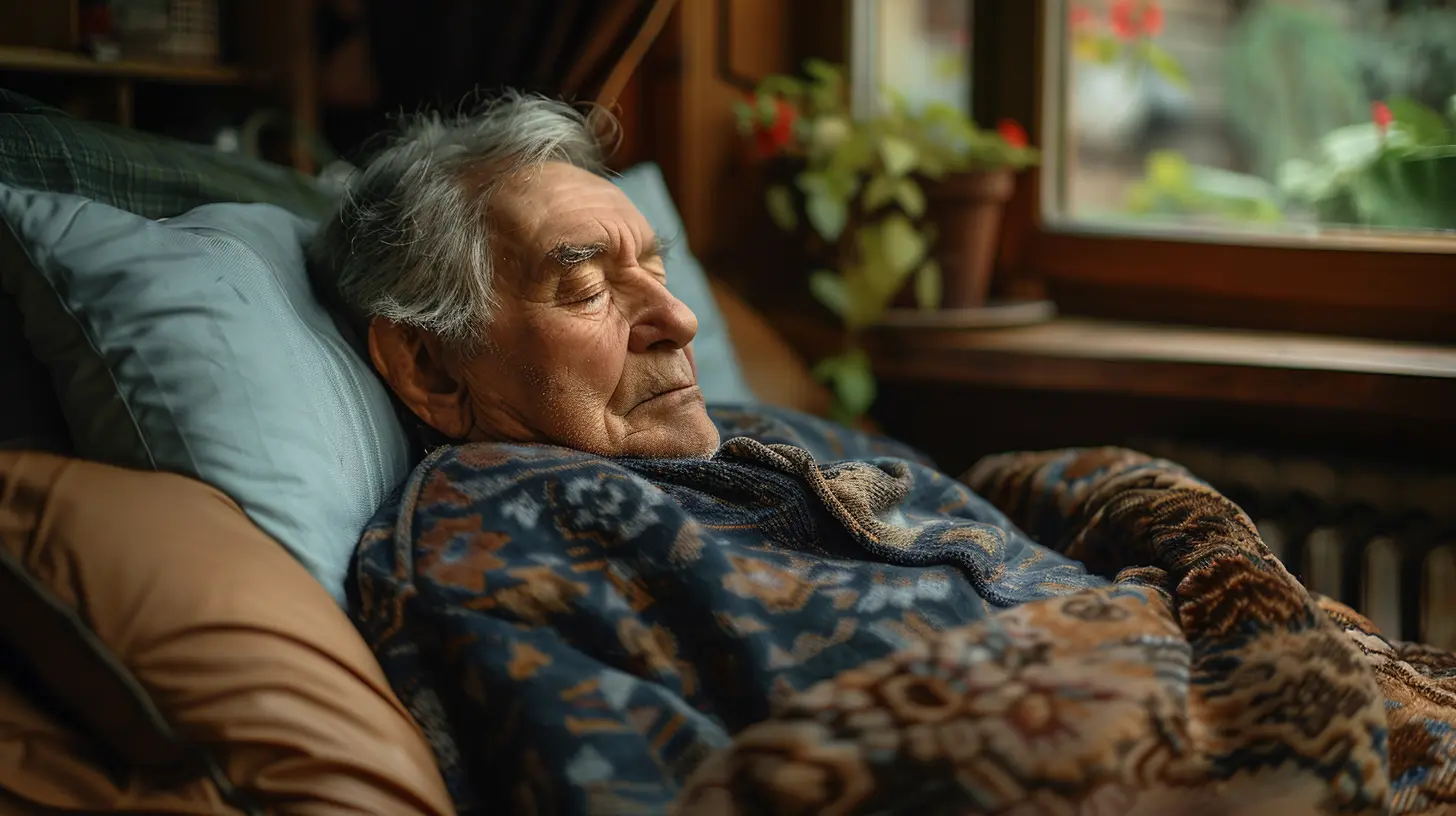
The Link Between Sleep and Longevity
Here’s where it gets even more interesting: studies have shown that people who get consistent, high-quality sleep live longer, healthier lives.In fact, sleep affects nearly every system in the body. Poor sleep is linked to all sorts of age-related health issues, including:
- Heart disease
- Type 2 diabetes
- Obesity
- Alzheimer’s and other forms of dementia
- Weakened immune system
- Depression and anxiety
Think of sleep as your body’s natural maintenance crew. Without it, things break down faster. With it, they last longer.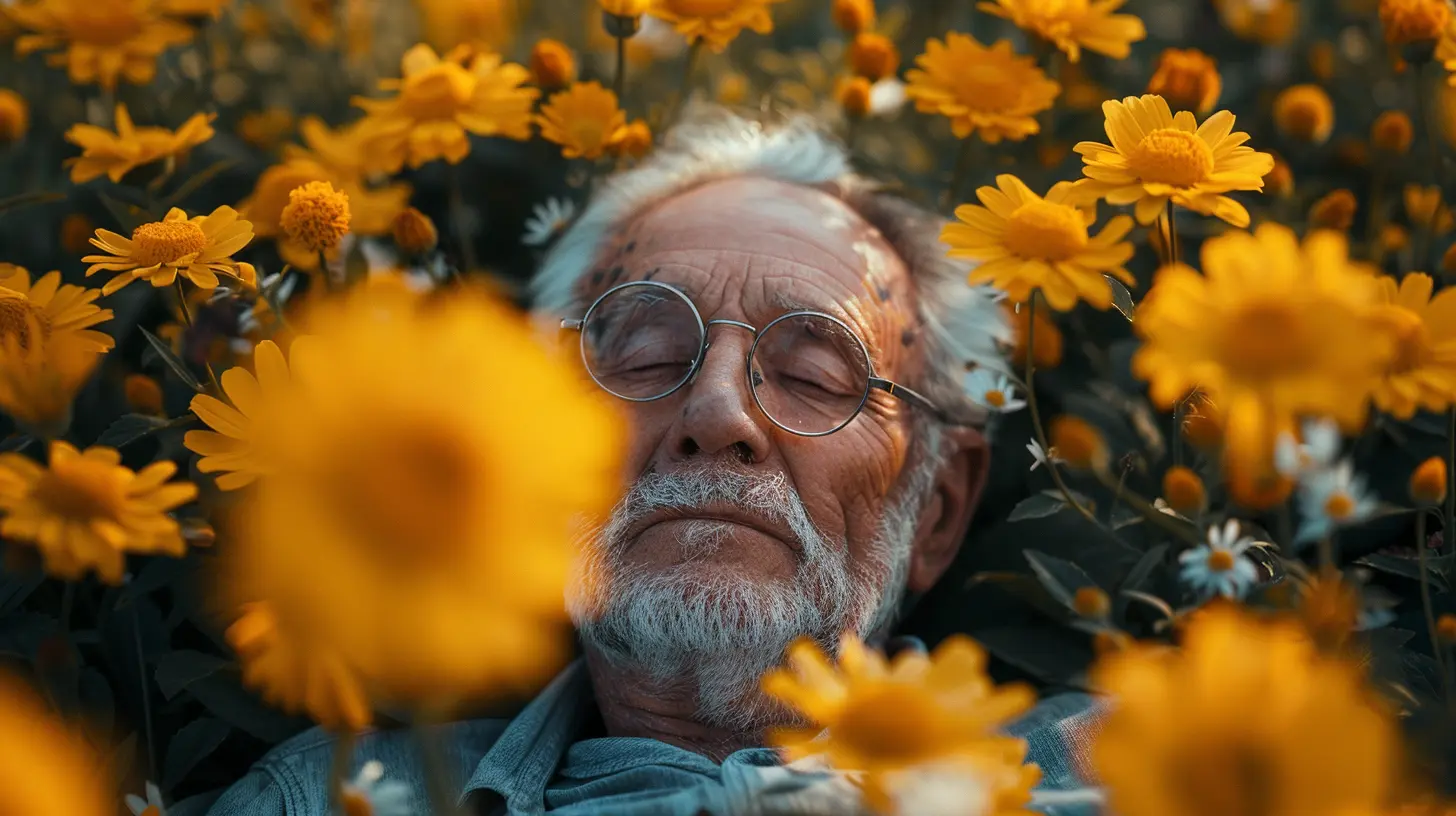
The Brain-Sleep Connection
Let’s talk brains for a sec. Sleep is like a spa day for your brain. It helps consolidate memories, sharpen focus, and even wash away harmful waste products that can lead to cognitive decline.There’s something called the glymphatic system (yes, it’s a real thing and not a typo). It’s basically your brain’s garbage disposal, and it works mostly while you sleep. When sleep is cut short, that waste includes things like beta-amyloid plaques, which are linked to Alzheimer’s disease.
So yeah, skipping sleep isn’t just making you forget your keys—it could be speeding up cognitive aging, too.
Sleep and Emotional Well-being
Let’s be honest. Everything feels worse when you're sleep-deprived. You're moody, easily irritated, and less able to handle stress.That’s not just in your head—well, actually, it is—but it’s also rooted in science. Sleep helps regulate your emotional brain, particularly the amygdala, which processes your reactions to stress and fear.
Failing to get enough sleep can lead to more anxiety, depression, and that all-too-familiar feeling of being overwhelmed by the little things. Want to age with grace and peace of mind? Start by guarding your Zzz’s like a treasure.
Your Immune System Needs Sleep Too
No one likes getting sick, and as we age, our immune response naturally weakens. Guess what strengthens it? Yup—sleep.During sleep, your body releases proteins called cytokines that help fight infections and inflammation. Skimping on sleep decreases the production of these protective warriors and weakens your overall immune response.
So if you’re trying to dodge the flu, colds, or worse as you get older, better sleep hygiene might be just as important as your vitamins.
Sleep’s Role in Maintaining a Healthy Weight
Sleep and weight go hand in hand, especially as we age and our metabolism slows down.Lack of sleep messes with hormones like leptin and ghrelin, which control your hunger and fullness cues. When you don’t get enough rest, your body starts craving junk food like it’s trying to fill a void—and in a way, it is.
Plus, you’re more likely to skip workouts and make poor food choices when you’re tired. So if you're wondering why that stubborn belly fat won’t budge, it might be time to look at your bedtime routine.
Sleep and Skin Aging
Let’s talk vanity for a minute—because who doesn’t want to look younger?Sleep is when your skin repairs itself. You produce collagen, improve blood flow, and reduce dark circles and puffiness while you snooze.
That’s where the term “beauty sleep” comes from—it’s not just folklore. Chronic sleep deprivation can lead to fine lines, dull skin, and even breakouts.
So if you want glowing skin well into your golden years, you don't need a 12-step skincare routine. Try a solid 8 hours instead.
Tips for Better Sleep as You Age
Alright, so we’ve established that sleep is basically the fountain of youth. But what if you're struggling to get enough of it?Here are some simple, no-fuss tips to help improve your sleep:
1. Create a Sleep-Friendly Environment
Make your bedroom a sanctuary. Cool, dark, and quiet is the goal. Invest in blackout curtains, earplugs, or a white noise machine if needed.2. Stick to a Routine
Going to bed and waking up at the same time every day—even on weekends—helps regulate your body clock. Your body loves rhythm.3. Watch Your Diet
Avoid heavy meals, caffeine, and alcohol close to bedtime. These are known sleep disruptors, especially as we age.4. Move Your Body
Regular physical activity helps you fall asleep faster and enjoy deeper sleep. Just try not to exercise too close to bedtime.5. Turn Off Screens
The blue light from phones, tablets, and TVs tricks your brain into thinking it’s daytime. Try a screen curfew about an hour before bed.6. Limit Naps
Short naps (20–30 minutes) are okay, but long or late-day naps can mess with your nighttime sleep.7. Manage Stress
Phone calls with loved ones, light reading, meditation, and breathing exercises can help quiet the mind before bed.What About Sleep Aids?
If you’re tempted to reach for sleeping pills, be cautious. They can sometimes lead to dependency or have side effects—especially in older adults.Talk to your doctor first, and consider natural remedies like:
- Melatonin supplements
- Herbal teas (like chamomile or valerian root)
- Magnesium
- Lavender essential oil
Always consult your healthcare provider before starting any supplement, especially if you're taking other medications.
Wrapping It Up
Aging is a journey we all take, whether we like it or not. But how we age—now that’s something we can influence. And sleep? It's one of your best allies in that fight.Think of it as nightly maintenance for your body, mind, and soul. It's not just about avoiding disease or looking younger—though those are nice perks. It’s about feeling good, having energy, staying sharp, and enjoying life in every decade.
So tonight, instead of squeezing in one more episode or scrolling through your phone, why not turn in a little earlier? Your future self will thank you.
Sleep isn't a luxury. It's a necessity. And it might just be the secret weapon to aging well.
all images in this post were generated using AI tools
Category:
Healthy AgingAuthor:

Sophia Wyatt
Discussion
rate this article
2 comments
Eleanor Hurst
Great article! Prioritizing sleep is essential for healthy aging. Quality rest not only enhances cognitive function but also boosts overall well-being, helping us maintain vitality and resilience as we grow older. Sleep well!
June 14, 2025 at 4:52 AM

Sophia Wyatt
Thank you! I'm glad you found the article insightful. Prioritizing sleep truly is key to healthy aging and overall well-being. Sleep well!
Shannon McCarron
In slumber's gentle embrace, we find our grace, Renewed and restored, with each night’s soft trace. Sleep weaves vitality into the fabric of time, A silent guardian of youth’s radiant rhyme. Cherish the night, let your spirit unwind.
June 11, 2025 at 4:07 AM

Sophia Wyatt
Thank you for beautifully capturing the essence of sleep's rejuvenating power! Embracing rest truly enhances our vitality and supports healthy aging.
